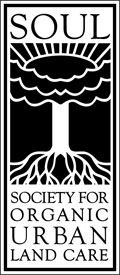2022 Greener Greenspace Profile
LEAF Demonstration Gardens
Located in Toronto, Ontario, at five urban subway stations, the LEAF Demonstration Gardens support plant and wildlife species and educate the public on the need to support pollinators and the urban forest.
Design and Process Located in Toronto, Ontario, these gardens are located at five subway stations across the city, which was made possible through the partnership with the Toronto Transit Commission (TTC). This partnership enabled LEAF to restore degraded urbanized areas into habitats that support both plant and wildlife species. Native shrubs and trees are selectively planted in all of the LEAF demonstration sites to support diverse pollinator species including bees, butterflies, beetles and flies. These greenspaces provide pollinators with the necessary resources to succeed, such as habitats that support foraging, nesting, reproducing and overwintering activities. LEAF avoids the use of synthetic pesticides and herbicides, and manages invasive species using hand removal techniques. These gardens are used as sites to educate the public about the benefits of planting native species and the urgency of protecting pollinator species. The LEAF demonstration gardens are aligned with Toronto's Pollinator Protection Strategy and Biodiversity Strategy for creating and enhancing pollinator habitats, managing invasive plants, building partners and relationships, and educating the public. As a result of composting, mulching and plant succession in these gardens, the otherwise compact and nutrient deficient soils are now rich with organic matter that support both aboveground and subterranean life. The various species found in these gardens contribute to the resilience of the ecosystem and enhance urban biodiversity. These demonstration sites assist in moderating temperature, absorbing carbon dioxide, and filtering air pollutants from the area. Site stewards planted specific native species that help stabilize the soil, remove toxins and tolerate drought through their deeper root systems. Permaculture techniques are routinely implemented, which has effectively minimized the site’s footprint. These techniques include mulching, the use of compost, reuse of materials and propagating seeds. Site curators have adopted techniques as a means to “work with the natural environment rather than against it.” Community Collaboration LEAF is a not-for-profit organization that encourages community members to become stewards of the land by providing education and training workshops and the opportunity to maintain these greenspaces firsthand. In addition to the training orientation that all volunteers must attend, LEAF also provides educational workshops and presentations about urban forestry, species identification, and plant care. Furthermore, plant species are labelled throughout the gardens as a means to educate the site’s stewards as well as the public about different species. LEAF also posts blogs about the gardens to keep the public informed about the various activities in these greenspaces. SOUL is happy to recognize the LEAF Demonstration Gardens as Greener Greenspaces in 2021 and 2022. For more information on LEAF, visit their website here. | .jpg)
|
Greener Greenspaces is a recognition program for sites from across Canada that exemplify greener greenspace stewardship. The aim of the program is to showcase examples of ecologically-focused land care as a means to inspire others and to further the movement across Canada.

%20(1).jpg)
%20(1).jpg)
%20(1).jpg)